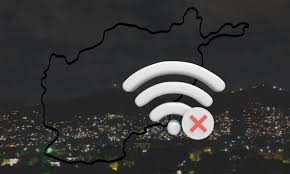You know, every once in a while, the internet feels like this wild, unstoppable beast that just keeps growing and growing. It’s where we work, play, rant, and connect. But have you ever stopped to wonder what would happen if—boom—it all just went dark? Not a glitch, not a server hiccup, but a full-on internet blackout. Sounds like sci-fi, right? Well, funny enough, experts are warning that this isn’t just some doomsday fantasy anymore. It might actually be on the horizon.
Why Should We Even Care?
I mean, we’ve all had those moments where our Wi-Fi craps out, and it feels like the world’s ending (guilty). But this blackout idea is a whole different level. We’re talking about potentially days or weeks without access to online banking, social media, emails, streaming — basically, life as we know it grinding to a halt.
Some experts say it’s not a matter of “if” but “when.” Cyberattacks are growing, governments are flexing their digital muscles, and infrastructure vulnerabilities keep piling up. (Remember that time your favorite site got hacked and you lost all your saved playlists? Yeah, imagine that but on steroids.)
The Real Threats Behind the Scenes
It’s easy to think of hackers as lone wolves in hoodies tapping away in a basement, but this has gotten way more serious. Nation-states are now involved, launching cyber weapons to disrupt rival countries’ communications, financial systems, even power grids. Sounds like a Hollywood movie, right? Except this is real life, and it’s happening more than you’d think.
Here are a few reasons experts warn about a potential internet blackout:
- Cyberwarfare escalation: Countries using the internet as a battlefield, targeting critical infrastructure.
- Massive DDoS attacks: Overwhelming servers so badly they crash and take down entire networks.
- Supply chain vulnerabilities: A single compromised software update could cascade into widespread chaos.
- Natural disasters: Ever thought about what happens if a major solar flare fries satellites and cables? Yeah, that too.
How Are We Preparing? Or Are We?
So, with all this talk, you might expect governments and companies to be on high alert, right? Well, yes and no. Some are building more resilient networks and investing heavily in cybersecurity (because, duh). But there’s also this constant race — hackers evolve, defenses adapt, then hackers come back with something new.
And honestly, a lot of people are still pretty clueless about how fragile our online world is. Just last week, I overheard someone saying, “The internet can’t just go down, can it?” — and honestly, I can’t blame them for thinking that. It feels too big, too complicated, too permanent.
What Can We Do?
Let’s be real—most of us aren’t going to be tech wizards overnight or stockpile satellite phones (though, hey, if you want to, more power to you). But there are a few simple things to keep in mind:
- Back up your important data regularly (yeah, your vacation pics count).
- Have offline copies of critical info — passwords, contacts, stuff like that.
- Stay informed about cybersecurity basics — phishing scams, suspicious links, you know the drill.
- Support efforts and policies pushing for better cyber defenses.
Because when the lights do flicker—whenever that may be—we want to be ready, not scrambling.
So, What’s Next?
Will we see a true internet blackout soon? Hard to say for sure. Experts disagree on the timeline, but they agree the threat is real and growing. Funny enough, the internet has become so essential that the stakes have never been higher.
It’s easy to get lost in conspiracy theories or get overwhelmed by the technical jargon. But here’s a thought: maybe just keeping a little awareness and preparing in small ways can make a big difference.
After all, the internet blackout isn’t just about tech — it’s about how connected we really are, and how fragile that connection might be.
Help keep this independent voice alive and uncensored.
Buy us a coffee here -> Just Click on ME










